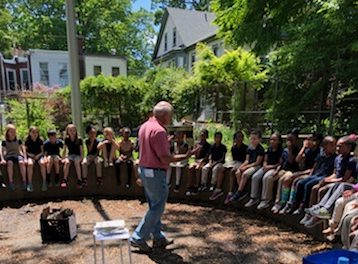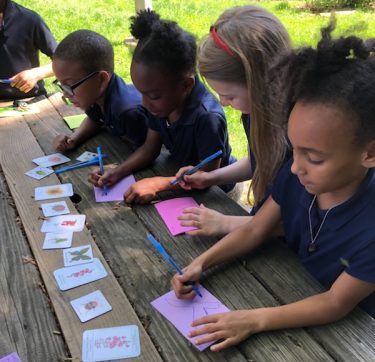Engaging with the Natural World to Help Migratory Birds
Alaska Grant Winner

The community of Charles W. Henry School in the West Mt. Airy neighborhood of Philadelphia had a mission to increase the size of its pollinator-friendly growing space and bird habitat. With the school close to a historic stop for migratory birds, they wanted to improve upon their campus for birds and locals to enjoy. For the last 9 years, the school’s organic vegetable garden has served students, staff and neighbors as a source of learning through growing and tasting the amazing produce and observing all aspects of garden life. With the Bird Sleuth grant, they were able to build on recent additions to the garden area and renovate two existing beds to become more pollinator and bird-friendly. Members of the school community and neighbors came out to remove invasive weeds, top off the beds with new soil, amend with fertilizer and then mulch to discourage weeds and aid in moisture retention. Students and parents helped plant the new native, site-appropriate shrubs and perennials that will provide more shelter and food sources for bird and insect friends

Each year, through the efforts of the C.W. Henry School Parent Teacher Association, students learn about the importance of pollinators and food production in the school’s organic garden with their farm educator. Students study flower biology and how insects, birds, and animals help pollinate the flowers to create the fruits and vegetables we all enjoy. Over the years, students have created birdhouses to place around the school grounds and built insect mansions to provide a variety of nesting choices for overwintering insects in the garden. The lessons provided by Habitat Connections allow teachers to continue the conversation with their students for a deeper understanding of our need to be environmental stewards.
The garden allows the students to explore and discover while being introduced to their own impact on the environment. One of the teachers said, “My kids love being in the garden! It gives us time to get outside, look around and talk about the creatures we depend on and how to help the ones that depend on us.” And another teacher felt that one of the most rewarding experience was watching students who were reluctant to get their hands dirty or were afraid of insects overcome to all and become more comfortable in their natural world.